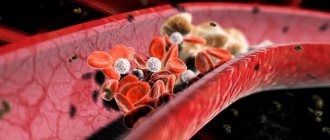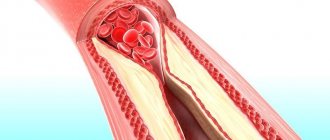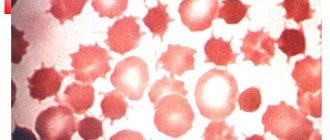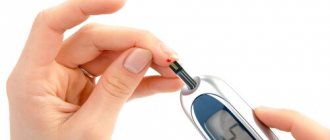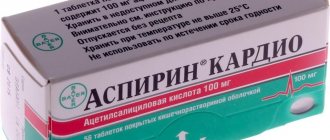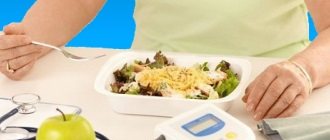Avocado
This exotic fruit contains a large amount of polyunsaturated fatty acids. It is these components that help reduce the risk of heart and vascular diseases and improve memory. A lack of fatty acids in the diet is one of the main factors in the development of atherosclerosis and the appearance of “bad” cholesterol.
Potassium in avocados is one of the main nutrients for the heart muscle. This element helps prevent stress, which prevents the development of ischemia of the heart muscle and atherosclerosis.
Avocado normalizes water-salt metabolism and thereby lowers blood pressure, regulating the level of hypertension.
Vitamins and minerals, found in abundance in avocados, promote hematopoiesis and active blood circulation:
- Copper – resists anemia;
- Iron – increases hemoglobin levels and promotes blood circulation;
- Vitamin B2 – promotes the formation of red blood cells;
- Vitamins E, B6, C are necessary to maintain the contractility of the heart muscle.
- Enzymes are catalysts for the absorption of vitamins, which prevent myocardial degeneration and the full functioning of the heart muscle.
As a result of regular consumption of avocados, the level of “bad” cholesterol decreases and the level of “good” cholesterol increases. All these beneficial properties are preserved only in fresh fruits, since heat treatment significantly reduces their benefits for the cardiovascular system. It is recommended to use avocados in salads mixed with other vegetables and fruits. Orange and lemon complement the taste of this exotic product best.
Find out more: The benefits and harms of avocados, calorie content, how to choose?
Eight rules of a heart-healthy diet
Control your portion sizes
How much you eat is just as important as what you eat. Regular overeating is a direct path to obesity. Obesity is the shortest path to disruption of the heart muscle and blockage of blood vessels. There is probably no need to explain what consequences such a scenario might entail.
Content:
- Eight rules of a heart-healthy diet
- Benefits of different types of products
- Food as medicine
Eat more vegetables and fruits
Vegetables and fruits are good sources of vitamins and minerals. They also tend to contain a minimum of calories and a maximum of fiber. In most products of plant origin, scientists find beneficial substances that prevent cardiac diseases.
| Healthy vegetables and fruits | What to refuse |
|
|
Give preference to whole grains
Whole grains are a good source of fiber and other beneficial components that play a significant role in maintaining healthy blood pressure.
Increasing your whole grain intake is easier than you might think.
| Healthy grains | What to refuse |
|
|
Limit unhealthy fats
Limiting saturated and trans fats is an important step to lower blood cholesterol levels and therefore prevent ischemia.
High cholesterol leads to the formation and accumulation of lipid plaques in the blood, which can lead to atherosclerosis and increase the risk of heart attack or stroke.
| Type of fat | Recommendation |
| Saturated fats | Less than 7% of total daily calories or less than 14 g based on a total daily calorie intake of 2000 kcal |
| Trans fats | Less than 1% of total daily calories or less than 2 g per 2000 kcal per day |
The best way to reduce your intake of saturated and trans fats is to limit the amount of solid fats (butter, margarine) you consume. To do this, you can slightly reduce the portions of fat in sandwiches, porridges, soups, and also trim the fat from meat as carefully as possible, giving preference to lean varieties. Also, instead of fried potatoes, use baked ones, and instead of baked goods with creams, use less high-calorie cookies.
When cooking, it is better to give preference to monounsaturated fats, such as olive oil, and polyunsaturated fats, which are found in some types of fish, nuts, seeds, and avocados. Eating these fats instead of saturated fats helps regulate cholesterol levels.
| Healthy fats | What to refuse |
|
|
Focus on proteins without fats
Lean meat, fish, poultry, low-fat dairy products, and eggs are considered the best sources of protein. Meanwhile, it is important for people prone to cardiovascular diseases to choose leaner versions of these products. For example, instead of whole milk, choose skim milk, and replace fatty meat cutlets with boiled chicken breast.
Fish is also an excellent choice for a heart-healthy diet because it is an exceptional source of beneficial Omega-3s, which lower triglyceride levels in the blood. The best choices in this regard are salmon, mackerel, and herring. Plant sources of Omega fats: flaxseeds, walnuts, soybeans.
Good sources of low lipid and cholesterol-free proteins are legumes such as beans, lentils, and peas.
| Healthy proteins | What to refuse |
|
|
Minimize sodium intake
Eating large amounts of sodium can cause high blood pressure, which increases the risk of heart disease. Limiting your sodium intake is an important part of a heart-healthy diet.
Doctors recommend that healthy adults consume no more than 2,300 mg of sodium per day, which is equivalent to 1 teaspoon of table salt. People over 50 years of age, as well as people with high blood pressure, chronic kidney dysfunction, and diabetes are advised not to exceed the 1500 mg sodium limit.
And it is important to remember that most of the excess salt does not come from freshly prepared food, but in canned food, instant food, and semi-finished products. It is also important to choose your seasonings carefully to reduce sodium portions.
| Low salt foods | What to refuse |
|
|
Plan your menu
Now you know which foods are good for your heart and which you should avoid. Use this knowledge to plan your menu. But it is important to introduce foods from different categories into your diet, focusing on healthy foods from the list. Make sure that the menu is varied and not repeated from day to day. Consider the recommendations listed above.
Sometimes you can relax
It would be better, of course, if foods on the list of heart-harmful foods do not appear in your diet. But a piece of chocolate or a few chips won't harm your heart if included in your diet from time to time. Give yourself a little indulgence when you really want it. But remember: this is just a small indulgence, not a rejection of a healthy eating plan.
Take our advice and review your menu. Let not only your stomach rejoice, but also your heart, which also has its own favorite and hated dishes.
Grapefruit
The glycosides that make up this fruit of the citrus family give its pulp and peel a bitter taste. However, these substances, in combination with plant fiber, which grapefruit is so rich in, actively resist atherosclerosis and stimulate the work of the heart muscle and digestive organs.
Beneficial properties of grapefruit:
- Contains a large amount of vitamins (C, D, B1, P), which strengthen the circulatory system, improve the elasticity of blood vessels, and greatly enhance the effect of ascorbic acid.
- Stimulates metabolism in the body;
- Normalizes high blood pressure, especially effective in menopausal women;
- Increases tone;
- The minimum amount of calories (100 g of grapefruit contains only 42 Kcal) allows you to use grapefruit in dietary nutrition aimed at weight loss;
- Normalizes liver function, is used in therapeutic nutrition of patients with functional disorders of the liver;
- Reduces cholesterol levels, and thereby reduces the risk of developing diabetes mellitus and myocardial infarction;
- The pulp and juice of grapefruit perfectly quenches thirst.
Grapefruit is eaten as a dessert and added to salads. The optimal amount for the prevention of heart and vascular diseases is at least 2-3 fruits per week, it is advisable to eat them during breakfast.
Find out more: Beneficial properties and uses of grapefruit for weight loss and facial skin
14-17: Drinks
In addition to drinking enough water, there are other drinks that are good for your cardiovascular system. For some of them, moderate consumption is a prerequisite.
Coffee
Subject to limited inclusion in the diet, coffee helps improve heart function and increase vascular tone.
In addition, the beneficial effect of coffee is expressed in stimulating the central nervous system and improving mood, which also helps improve the functioning of the cardiovascular system.
For symptoms of hypertension, angina and tachycardia, experts recommend eliminating coffee from the diet.
Red wine
Dry red wine is beneficial for the body in doses not exceeding 200 ml per day . The benefit of this drink is to improve blood formation and blood flow. In addition, wine has the beneficial properties of grapes, preventing blood clots and increasing hemoglobin levels.
Cognac
The normal daily dose of cognac should not exceed 50-100 ml , otherwise the harm will exceed the beneficial effect of its consumption. The health benefits of cognac are the same as those of wine - improved blood flow, hematopoiesis, and strengthening of blood vessels.
In addition, consumption of cognac has a beneficial effect on the condition of blood vessels in the brain and the absorption of nutrients from food, including vitamin C.
Green tea
Consuming green tea helps cleanse blood vessels and normalize blood pressure when consumed regularly. In addition, regular moderate intake of green tea protects the heart from heart attacks and the brain from strokes.
Do not overuse green tea or drink too strong a drink. For a more gentle effect on the stomach and central nervous system, you can drink tea diluted with milk.
Apples
If you eat at least one apple every day, you will soon notice the positive effects of eating these fruits on all organs and systems. A significant share of this effect is due to the prevention of heart and vascular diseases, as well as reducing the risk of developing cancer.
Apple fiber, pectin fiber and a large amount of vitamins help reduce blood cholesterol levels. Fasting days, based on eating apples, help reduce swelling, normalize blood pressure, and stimulate the digestive system.
Potassium contained in apple pulp normalizes the activity of the excretory system. Pectin fibers bind toxins in the intestines and actively evacuate them from the body, cleansing the human body. Prevention of gout and diabetes when eating apples occurs due to the normalization of the acid-base balance with organic malic acids.
Find out more: The health benefits and harms of apples
11-13: Berries
Berries are a natural storehouse of concentrated vitamins. Among the berries that have the most beneficial effect on the heart are the following.
Cranberry
Due to the content of anthocyanins in cranberries, toxins are removed, cholesterol levels are normalized, and heart attacks and strokes are prevented.
See 3 facts about the effect of cranberries on the heart and blood vessels here.
Ursulic acid, by dilating venous vessels, helps improve blood flow, and phenols help strengthen the walls of blood vessels.
Kalina
Viburnum is an indispensable product for the treatment and prevention of hypertension .
Due to its consumption, blood pressure levels are normalized, blood vessels are cleansed, and cholesterol levels are normalized. Viburnum strengthens the heart muscle. This berry also helps eliminate swelling.
Grape
The most beneficial property of grapes for the heart is that it prevents blood clots. In addition, due to its consumption, vascular permeability is maintained and heart activity is normalized.
Grapes help increase hemoglobin levels and normalize blood pressure.
Pomegranate
This fruit is considered the best remedy for the prevention of heart disease. It exhibits its exceptional properties when consumed in the form of freshly squeezed juice or fresh. Natural enzymes and biostimulants of pomegranate stimulate blood circulation in blood vessels, which helps reduce cholesterol levels, thin the blood, and effectively resist atherosclerosis and the development of cardiovascular pathologies.
Antioxidants found in pomegranate juice, according to research by American scientists, can resist prostate cancer and increase potency by stimulating blood circulation in the pelvic organs. To achieve a pronounced therapeutic effect, you need to drink 200 ml (a glass) of freshly squeezed pomegranate juice per day.
Find out more: Useful properties and recipes for using pomegranate
Sample menu for the day, according to diet No. 10
Breakfast (8 am) - cottage cheese with sour cream, semolina or rice porridge with milk, bread with butter, tea with milk.
Lunch (13 hours) - pureed vegetable soup, steamed meatballs in white sauce, crumbly rice porridge, baked apples or pearl barley soup with vegetables, boiled meat with carrot puree, tea.
Afternoon snack (16:00) - omelet and apple-carrot puree, rosehip infusion.
Dinner (19 o'clock) - buckwheat cottage cheese casserole, vegetable cutlets with prunes, jelly or curd pudding, potatoes with boiled fish, jelly.
Late dinner (22:00) - a glass of yogurt or fruit juice, a biscuit.
Flaxseed oil
This product is a recognized leader in the content of polyunsaturated Omega-3 fatty acids, which allows it to be used for the prevention of heart and vascular diseases. Among its positive properties is the ability to reduce the level of “bad” cholesterol in the blood and prevent increased blood clots.
Due to the high calorie content of flaxseed oil, it is advisable to consume no more than 2 tbsp. l. in a day. The oil is used for dressing salads, flax seed is added to porridges and main courses.
Find out more: The benefits and harms of flaxseed oil, how to take it?
Cereals
Fiber from cereals quickly dissolves and is absorbed by the body, which makes it possible to use it as a counterweight to dietary cholesterol. Cereals made from cereals are very convenient to use for the prevention of cardiac ischemia and atherosclerosis.
The largest amount of potassium and Omega-3 fatty acids, which are beneficial for the heart muscle, is found in oatmeal. The combination of plant fiber from cereals and Omega-3 polyunsaturated acids can effectively clean blood vessels from cholesterol plaques and reduce cholesterol. You can determine the amount of plant fiber by the size of the grain - it is preferable to use coarse grains.
What should you avoid?
In addition to including the above products, to normalize the functioning of the cardiovascular system, a number of harmful products should be excluded from the diet.
Energy
Energy drinks contain unacceptably high levels of caffeine, sugar and preservatives. The effect of each of them and their combination can cause an abrupt increase in pressure, too much stimulation of the heart muscle. scientific facts about the effects of energy drinks on the cardiovascular system here.
When they are consumed, the body, including the heart, begins to work hard. After completion, the effect is the opposite - an undesirable strong decrease in pressure and blockage of blood vessels occurs.
Salt and sugar
It is not advisable to completely give up salt. It is necessary in small doses. At the same time, for some cardiovascular diseases, its consumption must be minimized or switch to salt, in which sodium is replaced by potassium. Excess salt has a negative effect on the heart.
Sugar has a strictly negative effect , it is better to give it up completely.
Fatty food
Fatty foods increase the load on the heart and contribute to the deposition of cholesterol on the walls of blood vessels, which increases the risk of developing atherosclerosis.
Not all fat is bad. Fat in pork (with the exception of lard), lamb, and also in foods fried in copious amounts of oil is mainly harmful.
You also need to exclude:
- Alcoholic drinks, especially beer, are harmful to blood vessels.
- Fried meat.
- Fast food.
See also:
- 8 most harmful foods for the cardiovascular system.
- 7 scientific facts about the effects of alcohol on the heart.
Beans and legumes
Plants of the legume family are distinguished by a large amount of valuable plant fiber, as well as potassium - the element that the heart needs most. They are traditionally used as a side dish or a meal on their own, as red beans and lentils are extremely nutritious.
Flavonoids found in beans are essential for preventing high blood pressure. A large amount of vegetable protein and fiber, potassium, iron and folic acid make these products indispensable in the diet of those who care about their own heart.
Garlic
Everyone knows the antiviral properties of garlic. However, as a means of preventing hypertension, this product is also extremely useful, thanks to more than 60 components of its composition, which allows you to lower blood pressure by 15-20 divisions of the tonometer without medications. Nitric oxide and hydrogen sulfide contained in garlic reduce vascular hypertonicity and further lower blood pressure.
Find out more: The benefits and harms of garlic, garlic treatment
Broccoli
Broccoli is considered one of the most nutritious and healthy of all types of the cabbage family due to its exceptional composition:
- Potassium,
- Magnesium,
- Phosphorus,
- Manganese,
- Vitamins B, C, D,
- Plant fiber.
These substances allow broccoli to actively resist the development of diabetes and cardiovascular diseases.
Find out more: Benefits of broccoli and harm of broccoli
conclusions
Adequate treatment of diseases of the circulatory system includes not only drug therapy, but also a well-chosen diet. Doctors recommend taking a comprehensive approach to the treatment of pathologies and not equating a balanced diet with restrictions. A variety of seafood, vegetable fats and meat, fresh fruits and vegetables replenishes the supply of essential substances and prevents the development of pathologies. A combination of diet, physical activity and giving up bad habits is the key to good health and longevity.
Berries
The benefits of such a nutritious product as berries in preventing aging are beyond doubt. Potassium, which is certainly present in all types of berry crops, is necessary for the proper functioning of the heart muscle. It actively resists edema, removing excess water from the body. Complete treatment of arrhythmia and heart failure is impossible without additional administration of potassium to the body.
Magnesium found in berries has similar properties. In addition to removing excess fluid, it helps lower blood pressure by dilating blood vessels.
Vitamin C helps protect and strengthen vascular walls, and vitamin P protects the capillary network, reduces its permeability and fragility of blood vessels. The fiber in berries helps quickly remove toxins and lower cholesterol levels.
Useful properties of berries:
- Strawberries - contain pectins, tocopherol, folic acid, vitamins C, P, K, microelements (iodine, copper, zinc, manganese, iron, potassium). Eating strawberries helps lower blood pressure, cholesterol levels, clear atherosclerotic plaques and strengthen the walls of blood vessels. Effective in the treatment of anemia, gastritis, diabetes, stomach ulcers, and metabolic disorders.
- Cherry – contains vitamins C, B2, B6, microelements: iron, fluorine, magnesium, potassium. With regular consumption of cherries, this allows you to significantly strengthen the walls of blood vessels, reduce blood pressure and blood clotting, and calm the nervous system.
- Cherry - has vascular strengthening properties due to its composition, which contains vitamins C, A, P, pectin, glucose, nicotinic acid, iron, phosphorus, potassium.
- Black currant is the leader in the amount of vitamins. For example, the content of ascorbic acid (vitamin C) in this berry is 15 times higher than in apples. In addition, black currant berries contain vitamins PP, K, E, B1, B2, B6, D, which are actively involved in the process of hematopoiesis and tonic the functioning of the heart and blood vessels.
- Red currant - the exceptional property of this berry is the content of oxycoumarin, which allows you to regulate blood clotting. Reducing blood viscosity is an excellent prevention of heart attacks and strokes.
- Raspberry - its berries allow you to normalize blood clotting and strengthen the blood vessels of the heart without the use of drugs. This is possible due to the rich composition of raspberries; they contain tannins and organic acids, pectin and trace elements (iodine, iron, potassium, sodium, magnesium, phosphorus), carotene, vitamins C, PP, B1, B2.
Benefits of different types of products
| Product | Why is it useful? | Notes |
| Salmon | Rich source of Omega-3, selenium; strengthens blood vessels and the cardiovascular system | Serve baked |
| Sardines, mackerel, trout | Rich in Omega-3 acids, lower cholesterol and prevent the risk of sudden heart attacks | Avoid canned foods that contain a lot of salt; if possible, give preference to “wild” fish rather than pond-grown fish |
| Liver | Contains fats that are healthy for the heart and vascular system | Avoid excessively fatty |
| Walnuts | Source of polyunsaturated fats, Omega-3, fiber, vitamin E, folic acid, which contribute to the functioning of the system | Avoid salty ones |
| Almond | Known for its rich Omega-3 content | Can serve as an alternative to walnuts |
| Oatmeal | Reduces cholesterol | Avoid instant cereals with unhealthy additives |
| Blueberry | Contains the antioxidant resveratrol and flavonoids, which help prevent coronary heart disease | Give preference to fresh fruits; they can be combined with oatmeal and yoghurts. |
| Cherry | A source of heart-healthy components (vitamins C, , , potassium, magnesium, iron, fluorine), which strengthen the walls of blood vessels, has the ability to lower blood pressure, improves blood clotting | |
| Strawberries | Reduces blood pressure, cleans the walls of blood vessels from atherosclerotic plaques, regulates cholesterol; a diuretic that is useful for lowering blood pressure | |
| Cherries | A berry rich in pectin, vitamins A, C, potassium and phosphorus, which strengthen blood vessels | |
| Red Ribes | Contains oxycoumarin, which promotes proper blood clotting and prevents the development of myocardial infarction | |
| Black currant | A storehouse of useful components, strengthens blood vessels and the heart, regulates the process of hematopoiesis | |
| Red wine | Contains antioxidants (from grapes and other dark berries) that lower cholesterol and regulate blood pressure | Abuse leads to the opposite effect |
| Green tea | The product is rich in antioxidants, flavonoids and catechins, which have many benefits for the cardiovascular system, in particular, preventing the formation of blood clots | Consume at least once daily |
| Soy milk | A rich source of isoflavonoids, which lower cholesterol, and also contains vitamin B3, which is beneficial for blood vessels. | |
| Black chocolate | Due to the presence of flavonoids, it stabilizes blood pressure and improves blood flow to the heart. | The composition must contain at least 70% cocoa and no palm oil or other saturated fats |
| Raisin | Lowers blood pressure, contains lots of potassium and immune-boosting antioxidants | A handful of raisins a day is enough |
| Broccoli | Rich source of powerful antioxidants and fiber | It is better to boil, bake, steam without excess fat |
| Brussels sprouts | Contains many heart-healthy components, prevents inflammatory processes in the cardiovascular system, strengthens blood vessels | |
| Cauliflower | Richest source of antioxidants, fiber, contains allicin, which prevents heart attacks and lowers cholesterol | |
| Sweet potato | Excellent source of vitamin C, calcium and iron, which help stabilize blood pressure | Give preference to vegetables with skin – most of the heart-healthy substances are concentrated in it. |
| Legumes (beans, beans, lentils) | Important sources of potassium, iron, fiber and flavonoids, which strengthen the heart and blood vessels, prevent system disorders, and lower blood pressure | When consuming plenty of fiber, don't forget to drink enough water. |
| Pumpkin | This and other yellow, orange and red vegetables are rich in beta-carotene, vitamin C and potassium, which are useful for preventing atherosclerosis, regulating water-salt balance, and lowering blood pressure | Cook with a small amount of vegetable oil (for better absorption of carotenoids) |
| Whole grain | Regulates cholesterol levels | Avoid processed grains |
| Apples | Extremely rich in antioxidants, in particular polyphenols, as well as pectin and fiber, which prevent high cholesterol, relieve swelling, stabilize blood pressure | Minimum daily intake – 1 apple per day |
| Oranges | A rich source of pectin and flavonoids, which lower blood pressure and prevent inflammatory processes in the arteries; contain hesperidin, which improves blood flow to the heart; contains large reserves of vitamin C, which is a powerful protector against stroke | Avoid by people allergic to citrus fruits |
| Grapefruit | A good source of vitamin C, which reduces the risk of strokes, regulates cholesterol levels, protects against heart attack and atherosclerosis | Avoid eating grapefruit for breakfast if you are taking heart medications. |
| Pomegranate | Contains antioxidant substances, stabilizes blood pressure, prevents atherosclerosis | Drink at least a glass of juice a day |
| Avocado | A fruit rich in monounsaturated fats, vitamins B6, C and E, as well as heart-healthy copper and iron; normalizes cholesterol levels in the bloodstream, prevents the formation of blood clots and hardening of the arteries, which is the cause of most heart diseases | It is important to remember that this is a fairly high-calorie product. |
| Olive oil | Source of beneficial antioxidants that unclog arteries, considered the best oil for the heart | Must be natural, pure, without impurities |
| Linseed oil | Exceptional source of Omega-3 fatty acids, prevents blood clots | It is important that it does not contain harmful impurities |
Fish
This product is a recognized source of Omega-3 polyunsaturated fatty acids. Fish species such as salmon and salmon are especially rich in it. Their regular use 2-3 times a week will help regulate blood pressure and blood clotting, and thereby reduce the risk of myocardial infarction.
Sardine, tuna, mackerel, trout - eating such fish is extremely useful for preventing excessive blood viscosity and increasing the level of “good” cholesterol in it.
Rational nutrition during a heart attack
Myocardial infarction (MI) is one of the three most common CVDs, for which nutritional characteristics differ at different stages of pathology development.
Immediately after an attack, drug treatment tactics are aimed at preventing rhythm disturbances and maximally sparing the necrosis zone. During this period, patients are weakened and have decreased appetite. Even with severe thirst, drinking heavily is not recommended due to the risk of fluid passing into the interstitial spaces and the development of tissue edema. Water and electrolyte disturbances are corrected by parenteral administration of drugs. To quench the thirst, the patient is offered pieces of ice.
Only when the circulating blood volume (CBV) has stabilized and health has improved (after one or two days) do they resume eating and move on to the second stage of diet therapy for MI.
In order to maximally relieve the load on the heart, they begin to feed the patient with low calories (1200 kcal, distributed over 60 g of protein, 30 g of fat and 180 g of carbohydrates). Food is prepared gently (boiled, baked, steamed) without seasonings, strong odors and tastes at a temperature of 23-25 °C. A few days before discharge comes a beneficial time to prepare the patient for an expanded menu (third stage). The main recommendation: continue to adhere to the hospital menu, follow a diet and monitor your weight.
Basic principles at the third stage:
- increasing caloric intake to 1500-2000 kcal with adequate protein levels, reducing fat;
- a complete ban on alcohol (at least in the first months after the attack);
- low-sodium diet (salt restriction);
- last meal two to three hours before bedtime.
"Heart Vitamins"
Vitamins are found in minimal quantities in the body, but regulate the functioning of all organs and systems. Representatives of group B are often prescribed for the treatment of cardiovascular pathologies, which is why the term “heart vitamins” appears in the literature. They are obtained in two ways: from food or dietary supplements. I, as a nutritionist, will reveal to you the first way: the required amount and foods that are good for the heart.
| Vitamin | Daily requirement (mg) | What products contain |
| B1 (thiamine) | 1-2,5 |
|
| AT 3 | 15-20 |
|
| AT 5 | 5-10 |
|
| AT 6 | 2 |
|
| B12 (cyanocobalamin) | 2,5 |
|
Vegetarians prefer seaweed (kelp or blue-green), brewer's yeast, miso sauce and tofu.
Vitamin C is recommended for patients to strengthen blood vessels; it is found in the greatest quantities in berries (currants, rowan, fresh rose hips, strawberries).
Mushrooms
This product can be used to combat free radicals that negatively affect the cardiovascular system and cause cancer. This is facilitated by a special substance found in mushrooms - ergotianine, which neutralizes free radicals. In addition to this valuable quality, mushrooms are able to increase immunity and reduce cholesterol levels, and their properties are not lost even after cooking. Mushrooms contain the following substances:
- Plant fiber,
- Plant proteins,
- Vitamins of groups B, D,
- Microelements: selenium, magnesium, potassium, zinc, phosphorus, iron.
Diet No. 10, as the main diet for cardiovascular diseases
When prescribing dietary therapy for cardiovascular diseases, diets No. 10, 10a, 10c, 10i are used. In difficult cases, specialized diets can be used, such as potassium , hyposodium , fruit and vegetable diets and others.
For diseases of the cardiovascular system, atherosclerosis, rheumatism , heart defects, hypertension, and also after a myocardial infarction, diet No. 10 is prescribed. This diet promotes the speedy restoration of impaired blood circulation, improves metabolism, and also promotes the rapid removal of metabolic products from the body and stimulates the activity of the kidneys and liver.
The diet is characterized by limiting the consumption of table salt (up to 5 mg), coarse fiber and liquid (up to 1.5 l) and increasing the intake of foods containing calcium salts. These are dried apricots, dates, prunes, grapes, bananas, baked potatoes, broccoli, citrus fruits and cabbage. And also products containing magnesium salts: buckwheat, oatmeal, bran, nuts. The main goal of diet No. 10 is to reduce the load on the heart during digestion.
Nutrition principles when following diet No. 10:
- food should be as varied as possible;
- limiting foods that are a source of plant fiber;
- an increase in the diet of foods that help normalize fat metabolism;
- increase in foods containing alkaline compounds (milk, cabbage, carrots, apples, lemons);
- increasing the content of vitamins (groups A, B, PP, E, retinol, ascorbic acid), micro- and macroelements in the diet (potassium, calcium, phosphorus);
- frequent meals 5-6 times a day in small portions.
Diet No. 10 is complete, hyposodium, but the content of nutrients in it is reduced, as well as substances that excite the nervous system (strong coffee, tea, broths); the total calorie content is up to 2800 kcal. Food is boiled, baked or steamed.
